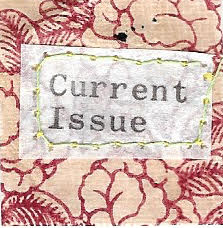Kwan Kew Lai
Serena
Serena waltzed into our sitting room, wearing a combination of colorful sari and silk scarves wrapping around her head and neck. She held her imaginary partner, eyes half-closed, dreamily and gracefully, letting herself be led across the long, shiny wooden floor. The sun rays of the early afternoon streamed through the open windows, her flowing sari billowed like sails, caught the dappled sunlight, as she twirled, dancing insistently into our quiet, dull existence.
We stood by the windows, a whole row of us, wearing our worn, dull hand-me-downs as we gazed with wonder at this gauzy fairy-like figure who danced with abandon, ignoring the creaking of the floor or the fact that the room was lopsided, leaning down the eroded slope, ready to be plunged into the abyss.
My mother, Ah Yee, sat in a rattan chair, shoulders hunched as her eyes followed her, paying particular attention to her dance steps. The only and the last time she danced or was made to dance was in her wedding reception. Everyone cheered as her husband dragged her around the floor, half embarrassed and out of breath through the effort. She felt awkward, not as graceful as this apparition in her sitting room. She could not remember how she came to know Serena. Was it in one of the dinner parties that she attended with her husband through his work?
The breathless dancing figure finally slumped down next to Ah Yee, reaching out for her hands, pulling them up to her lips and roughly kissing them as a guttural throaty noise issued deep from her chest through her mouth, completely out of synchrony with her graceful performance. Serena was a tall, dark, flamboyant Eurasian who often came in the middle of the day unannounced, dancing her way into our sitting room; the waltz, the cha-cha, the rumba, the samba... wearing a colorful sari, silk scarves or skin-tight jeans and stiletto with pointy-heads. Bands of bangles surrounded her wrists, strings of necklaces and beads hung from her neck, and dangling earrings adorned her ear lobes. Both finger and toenails were painted bright red. Thick dark eye shadows contrasted with her deep blood-red lipstick and pink rouge which she painted on her cheeks as two perfectly round circles like a clown.
This time the dance she chose was the waltz.
Born deaf and mute, when she opened her mouth, a husky, raspy noise emerged from her throat as she gestured wildly. Adam’s apple bobbed up and down prominently on her thin swan-like neck.
She then turned around and took a good look at us, my mother’s brood of seven children, tickling us, poking at our bellies, and making us laugh.
Ah Yee asked my oldest sister, Fong, to pour her a cup of Ceylon tea from the thermos and open a tin can of Marie biscuits, her idea of a high tea. Her meager budget did not allow her to have any form of expensive offerings. Gesturing, Serena invited us to partake of her food but we were fully aware of the warning stare of Ah Yee: Don’t you dare take a bite, these are for Serena. I held onto the hem of my skirt, brought it to my mouth, and shook my head but deep inside I wanted very much to have a taste of the Marie biscuits.
She took off her high heels and ran after us making us shriek with delight, the sort of thing my mother could not and would not do as she always had a baby in her arms to care for, to breastfeed. When she caught one of us she held us tightly in her death grip, making a point to smudge our faces with her make-up; red lipstick, and black eye shadow as she showered her kisses on us and growled, pretending to be a monster. Often, she succeeded, as this was always accompanied by her deep, guttural voice, coming deep from within her lungs and throat.
When all was quiet, she took out a compact mirror from her handbag, screwing up her eyes while she took a close look at her face and proceeded to clean and repaint it. She had never combed her hair, at least in front of us. She wore a wig of long dark curly hair trailing gently off her shoulders and her back.
Serena worked as an entertainer at a Club in downtown Georgetown. She enthralled us with her flamboyant outfit and her buoyant spirit. Her visits were a welcoming, refreshing interruption in our mundane life where entertainment was scarce. She never asked for any payment. Ah Yee could not afford it anyway.
Our inability to sign meant we could never ask her about her family, where and with whom she lived, her intimate feelings, love, and relationships.
Did she ever feel lonely?
Did she pay us periodic visits because she sought the closeness of family, companionship, and friendship?
Did the brief time she spent with us suffuse her with the energy and closeness that she would need to face her world of entertaining others, dancing to make them laugh with joy while she would never hear the sound of their merriment.
As a child, I loved Serena’s graciousness and gracefulness, and was in constant awe of her ability to overcome her disability to earn an honest living. In my mind she would continue her joyous dance, entwining her life with those of her audience; perhaps she would never feel alone despite the silence.





